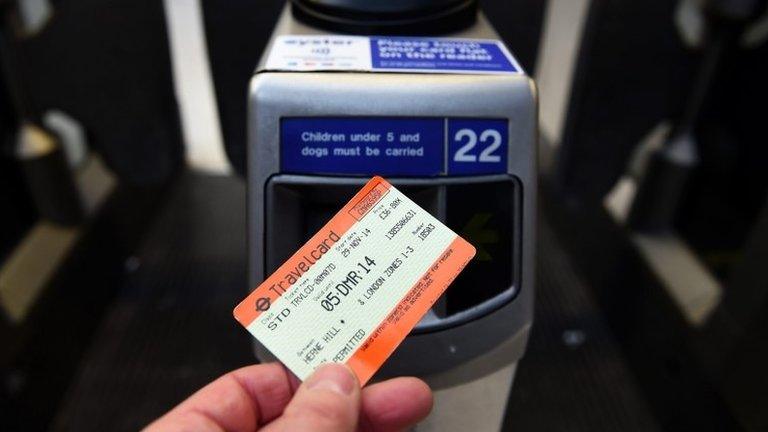Rail fares to rise by 1% in January
- Published
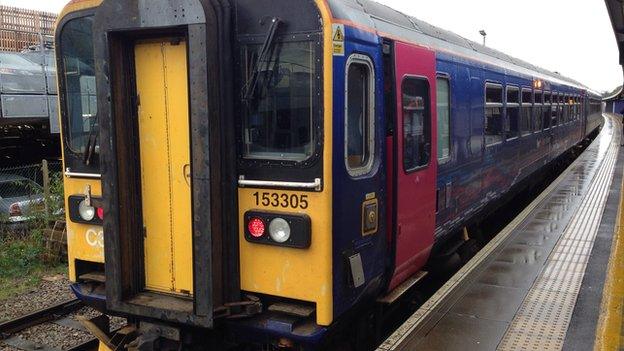
Inflation data is used to calculate fare rises for next year
Regulated rail fares are to rise by 1% in January, the Department of Transport has said.
Regulated fares such as season tickets are pegged to Retail Prices Index (RPI) inflation in July, which was 1%., external
Rail fares have risen nearly three times faster than wages in the UK over the past five years, analysis has suggested.
But rail minister Claire Perry said the government's plans would put an end to "inflation-busting fare increases".
A study by the TUC suggested regulated fare prices jumped 25% between 2010 and 2015, while average pay rose 9% over the same period.
Rail unions are campaigning for train lines to be run by the public sector, which they say will cut prices.
Regulated fares cover about half of all tickets sold, including season tickets and day returns.
Rail minister Claire Perry called a 'freeze' of rail fares "very good news"
'Lowest increases'
The government had already announced that regulated rail fares in England would rise by no more than RPI inflation for this parliament.
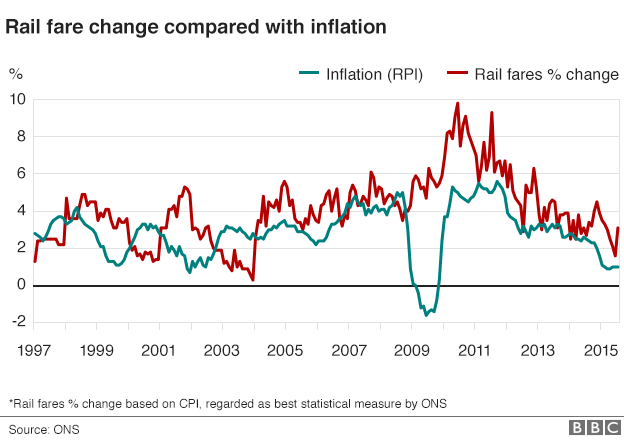
A restriction limiting increases in these fares to RPI inflation has been in place for the past two years, during the latter years of the coalition government.
"Next year's fares will see some of the lowest increases for decades," said rail minister Claire Perry.
Speaking to Radio 5 live, she said that the 1% rise in fares from January "is actually a real-terms freeze".
She added: "With the economy recovering, and wages recovering, for the first time in over a decade you'll actually see wage growth outstripping any change in rail fares."
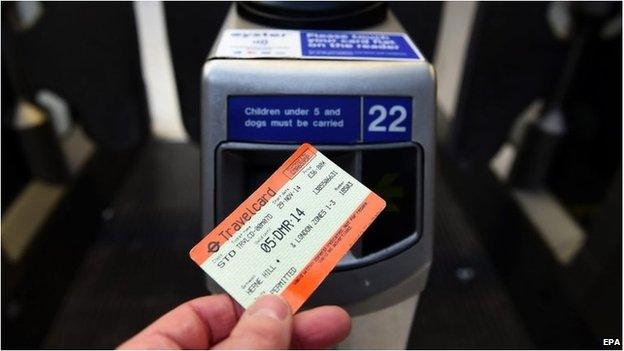
The unions say returning the railways to the public sector would help to reduce ticket prices
'Out of pocket'
But TUC general secretary Frances O'Grady said many commuters were "seriously out of pocket" because of the sharp rise in fares.
"If ministers really want to help hard-pressed commuters, they need to return services to the public sector.
"It would allow much bigger savings to be passed on to passengers," she added.
Action for Rail - the TUC and rail union-led campaign pushing to bring the railways back into public ownership - maintains that £1.5bn could be saved over the next five years if routes, including the Northern, Transpennine and West Coast Main Line, were returned to the public sector.
A third of this would come from recouping the money that private train firms pay in dividends to shareholders, according to Action for Rail, which commissioned the research from transport consultancy Transport for Quality of Life.
The analysis comes as a separate report from transport charity Campaign for Better Transport found the UK lagged behind the rest of Europe on flexible rail tickets.
Currently, season ticket holders only save if they use their tickets for five out of seven days, but it said shorter season tickets, such as four- or three-day-a-week tickets, would enable part-time commuters to make savings as well.
"The UK government and train operators are dragging their feet, meaning many part-time workers are being priced off the railway," said the charity's public transport campaigner, Martin Abrams.
- Published10 April 2015
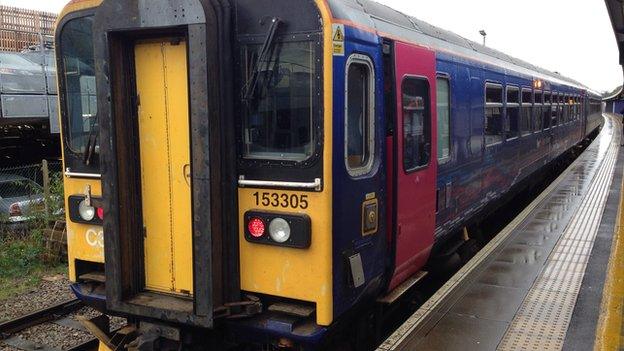
- Published2 January 2015
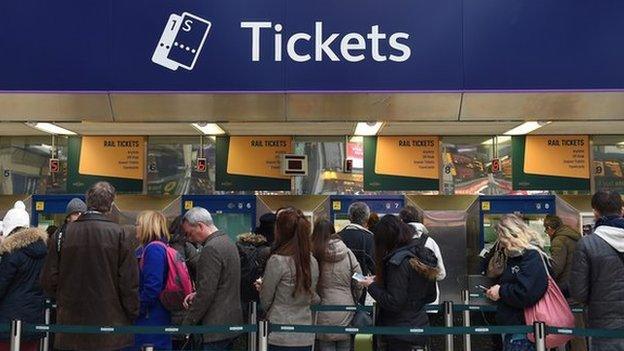
- Published1 January 2015
